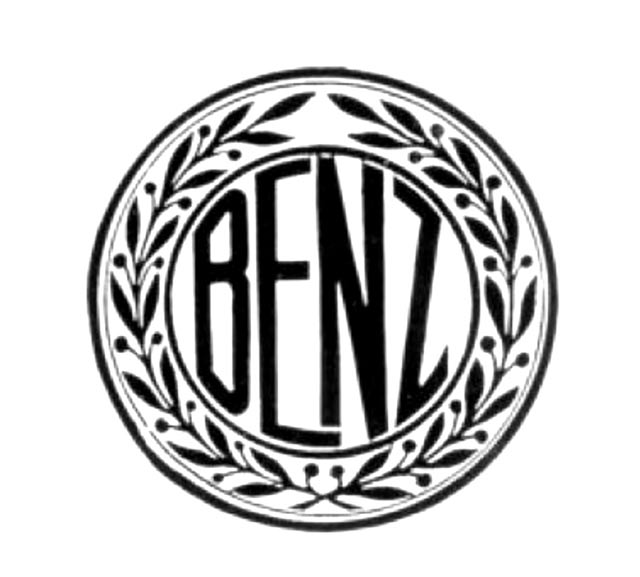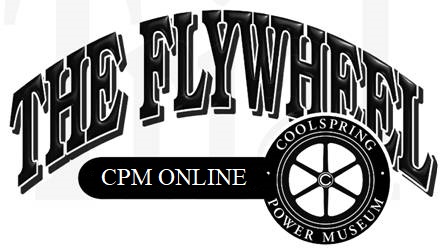
April 2021
The Benz Story
By Paul Harvey
Way back
in the early 1970s, while chatting with John Wilcox one day, I learned
that the Buckeye Pipe Line Company of Ohio experimented with many different brands of engines. Buckeye's approach was unlike the
practice of Eureka of West
Virginia and National Transit of Pennsylvania, both of whom
standardized on one or two brands. Buckeye used DeLaVergne, various
types of Bessemer, St. Mary’s, Kleins, Ruston, and various farm engines. Surprisingly,
Buckeye imported three 12 hp Benz Diesels for their
Parent, Homan, and Clark stations. The Clark engine experienced a
catastrophic accident and was lying in their Blackrun tool yard. John
had acquired the Homan engine, but the Parent engine was still
available.
Parent
and Homan stations were in the Lodi, Ohio, area and pumped crude oil to
the bigger Lodi Station, which had the remains of a 65 hp DH DeLaVergne. Although the building was gone, many interesting items were lying
about.
After
some phone calls, my Uncle Bruce and I were on our way in the faithful
International pickup to retrieve the engine. It turned out to be a difficult project with its one large flywheel and rounded
marine-style base. Finally it was happily on its side and secured
in the truck bed. Uncle Bruce and I safely arrived home after
enjoying a good dinner
along the way.
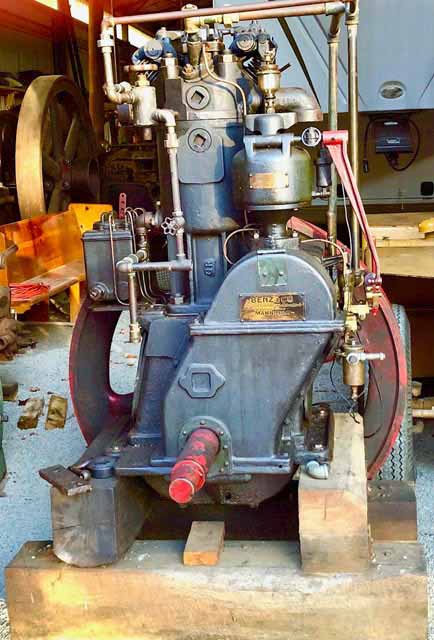
Benz engine at CPM, Fall 2020
Upon
getting it home, I built what I intended to be a temporary base for it
so I could lift it out of the truck vertically with the John Deere 2020
tractor and mount it for display and restoration. It lived this way in
various locations for about 50 years until the fall of 2020 when Gordon
Jones adopted it for restoration to be displayed in our proposed
Air-blast Injection (ABI)
building along with the Augsburg and Graz. It would represent 15 years of
German Diesel evolution.
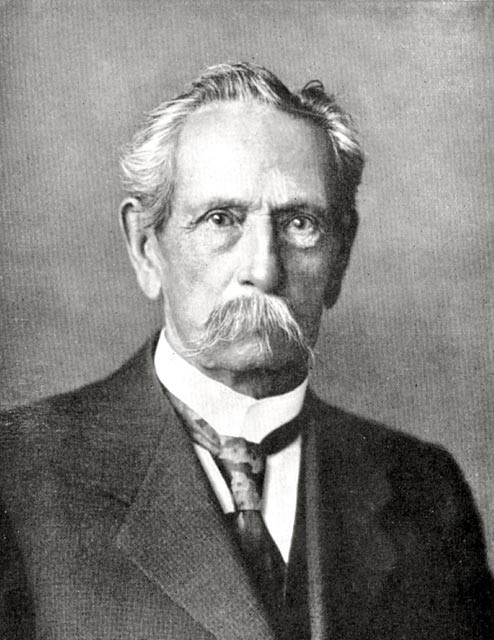
Karl Benz.
Karl
Benz was born November 25, 1844, in Muhlburg, Germany. His father passed
away when he was two, but his mother, although poor, was able to provide
a good education for him. He was a brilliant student and graduated from
the University of Karlsruhe with a degree in engineering at age 19! He
then moved to Mannheim and found work as a draftsman. Not satisfied, he
then teamed with August Ritter and opened the “Iron Foundry and
Mechanical Workshop.” Here, he developed a two-stroke cycle engine that
was successful. Receiving a patent on June 1880, he continued to design
both two-stroke and four-stroke cycle engines.
In 1883,
he founded the new “Benz & Companie Rheische Gasmotern-Fabrik,” commonly
known as Benz & Cie. Here, he started to produce stationary engines. In
1885, Karl introduced the “Benz Patent Motor Wagon,” using a very unique
four-stroke cycle engine.
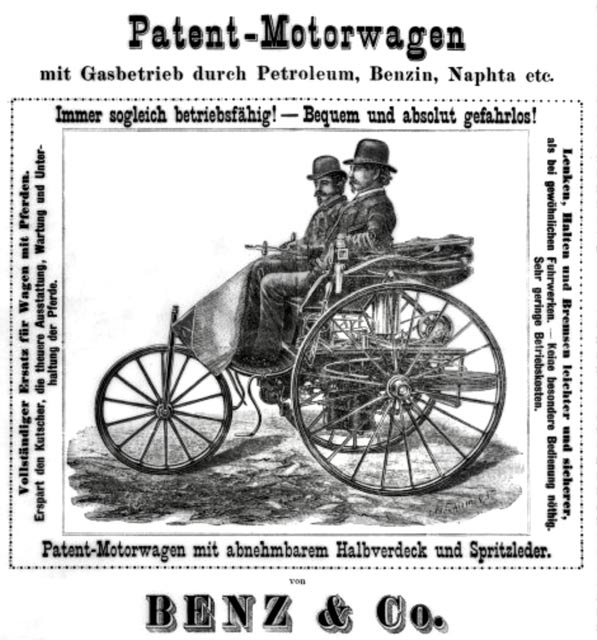
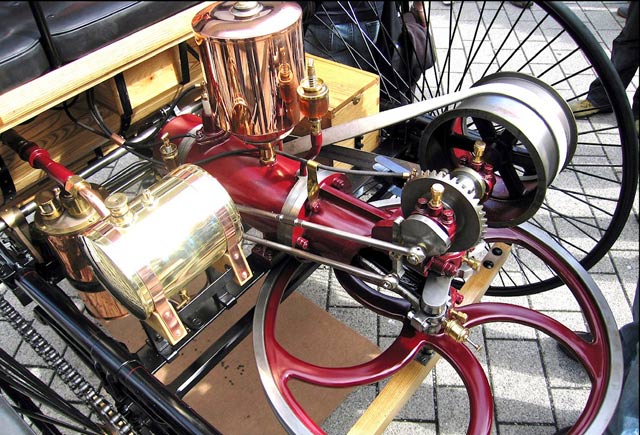
Benz Motor Wagon and Motor
Wagon engine
CPM’s
Benz Diesel was built in the Mannheim shops about 1918. In 1926, Benz &
Cie became Daimler-Benz after a merger. The first Mercedes Benz
automobile was built that year.
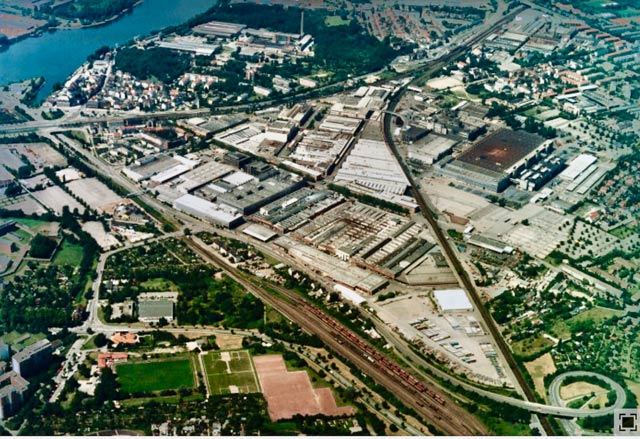
Benz Factory in Mannheim
So, just
what is the significance of the Benz engine at CPM? One must recall that
Dr. Rudolph Diesel placed his first air-blast injection engine on the
market in 1897. Yes, that was over 20 years later than Otto’s first
successful gas engine. But the Diesel introduced a new means of ignition
and efficiency. It was here to stay! Our Benz engine represents
15+ years of evolution. It will be installed in the new building to
accompany our 1903 Augsburg Diesel and the 1904 Graz. It is a typical
German Diesel, being vertical and with a single large flywheel.
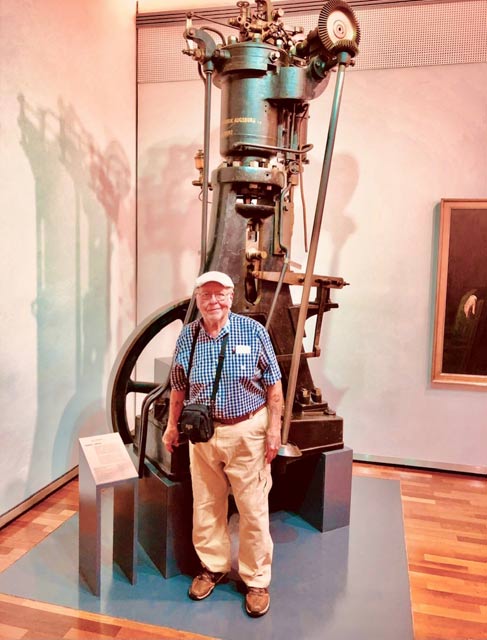
The author with Dr. Diesel’s first successful engine from 1897 at
the MAN Museum in Augsburg,Germany
The CPM
Benz definitely shows signs of a rather rough life in the oil field.
Several modifications were made that included a water-cooled valve to
pump compression pressure back into the starting air tank. It was also
provided with a huge hand crank for manual starting! Besides the nice
German oiler on the governor, a hand pump Lunkenheimer Alpha oiler was
added for pre-lube. Good idea! Gordon Jones adopted the Benz and took it to
his home shop to restore over the winter.
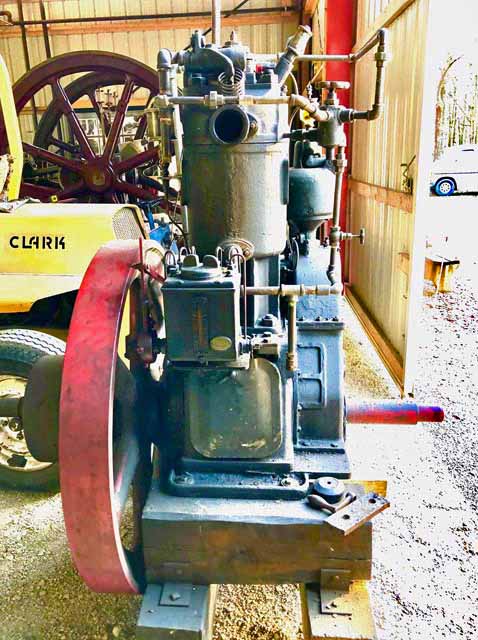

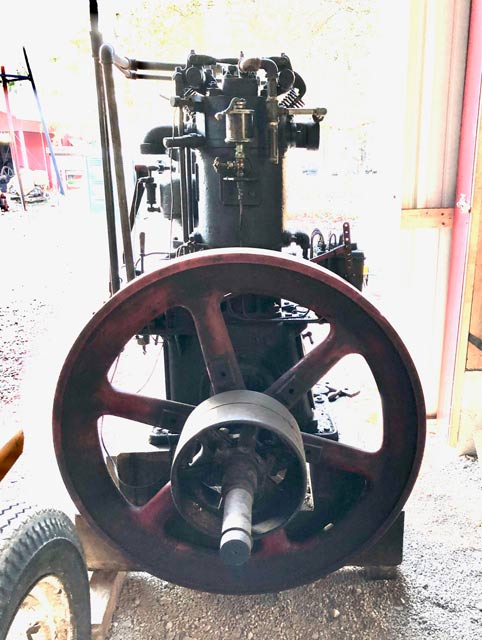
CPM Benz before leaving for restoration
Our
engine has two brass tags, one being the German Benz & Cie. and the
other from the sole distributor in New York City.
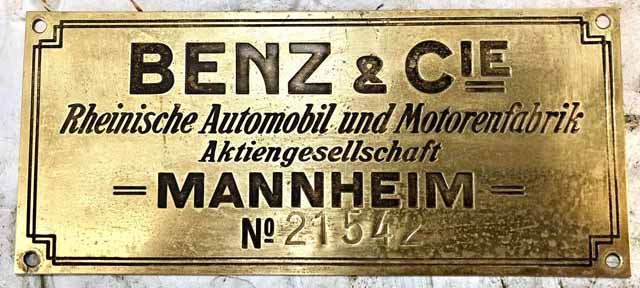
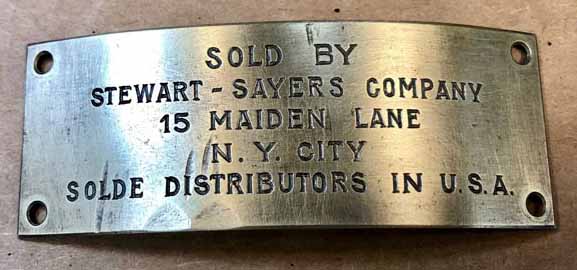
Benz nameplates
Gordon has been very dedicated to the restoration, and it is progressing well. So much has to be repaired or reproduced, and I have been able to do smaller parts in my home shop. I have made so many gaskets, and Olson Gasket reproduced a fantastic copper gasket to seal the injector into the head. Gordon had to repair almost every part!
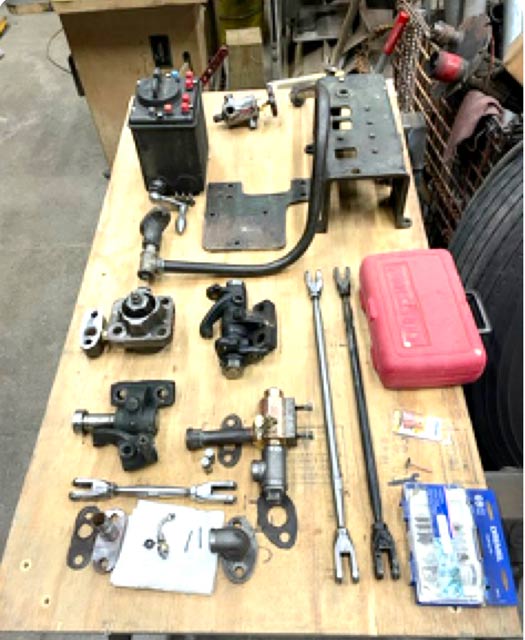
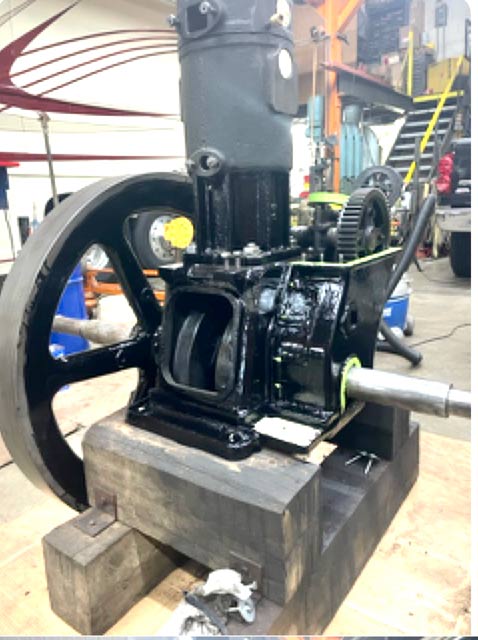
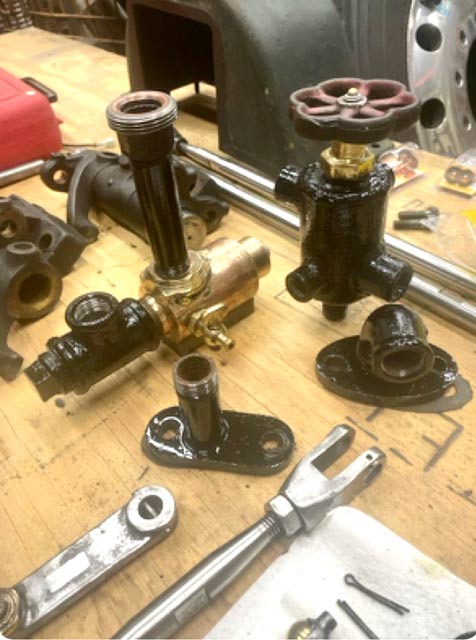
Benz restoration photos
Our good friend Dr. Friedrich Busch of Hof, Germany, who is probably the world’s expert on air-blast injection Diesels, kindly provided me with copies of the appropriate Benz literature. Note that CPM's Benz is a Type R which were produced from 1915 to 1923. I would guess that ours was built in 1918 as that is about when Parent Station was erected. The chart depicts that they were available in configurations from one cylinder to six cylinders. That would place CPM’s Benz 21 years after Dr. Diesel’s first successful engine of 1897.
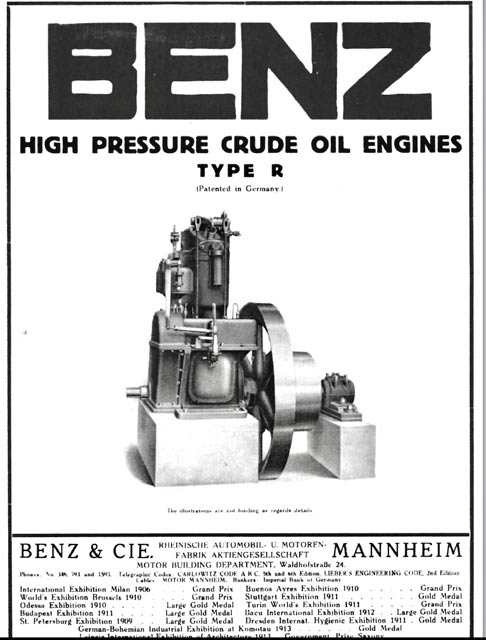
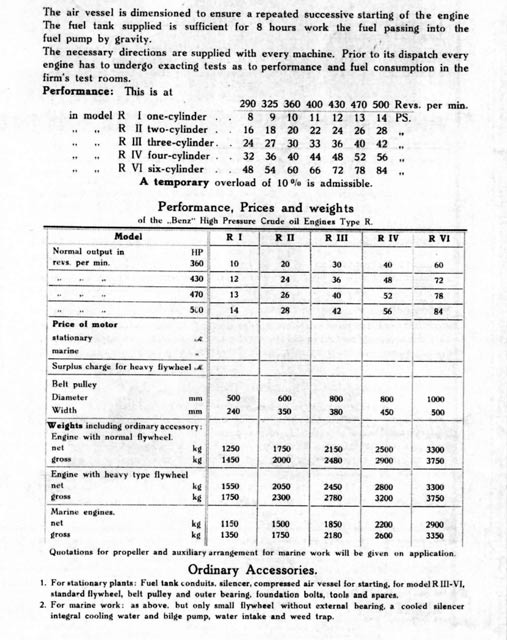
Benz literature
Our
great friend Adam Smith reproduced and designed many parts for us. The fittings are carefully done to decipher the thread types. Being
German, it has some metric, some Imperial, and other strange thread
types, probably Benz. The frustration this must have caused for the
Buckeye mechanics is evident by all the chisel marks on nuts that they
did not have a wrench for. Adam's work is fantastic!
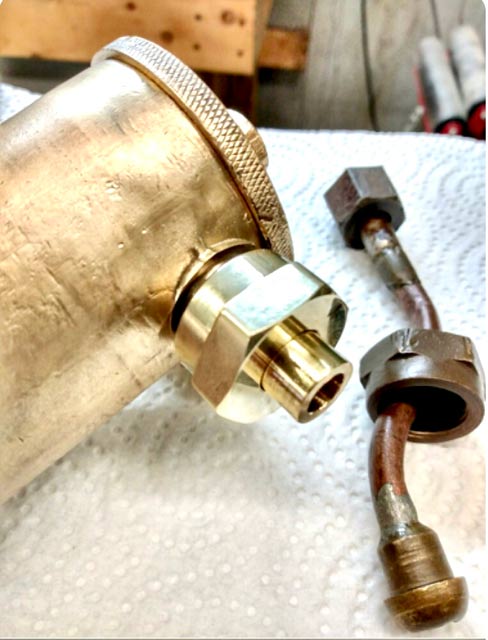
Adam’s handiwork reproducing a fitting
So we
have this neat German engine. What are we doing with it? Well, it will
be
the third engine in our upcoming ABI building! It
will also house our 1903 Augsburg and the 1904 Graz which is still
in Germany because of the COVID-19 pandemic. Hopefully it will arrive this
summer. The ABI building is an exciting project that is becoming a reality.
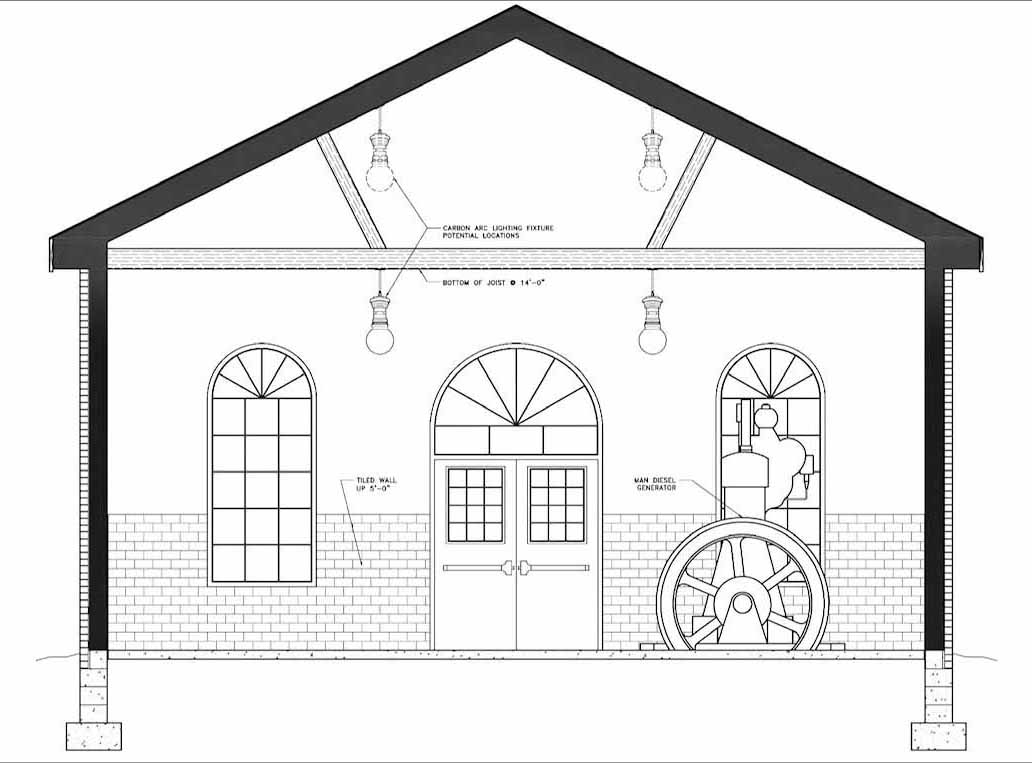
Sneak peek at CPM's ABI Building
I
certainly hope you have enjoyed this brief visit to CPM’s Benz engine. Stay tuned because next month will be about the fantastic new building
and what it will house.
Think
Benz! Think Air-Blast Injection Diesels! Think CPM!
